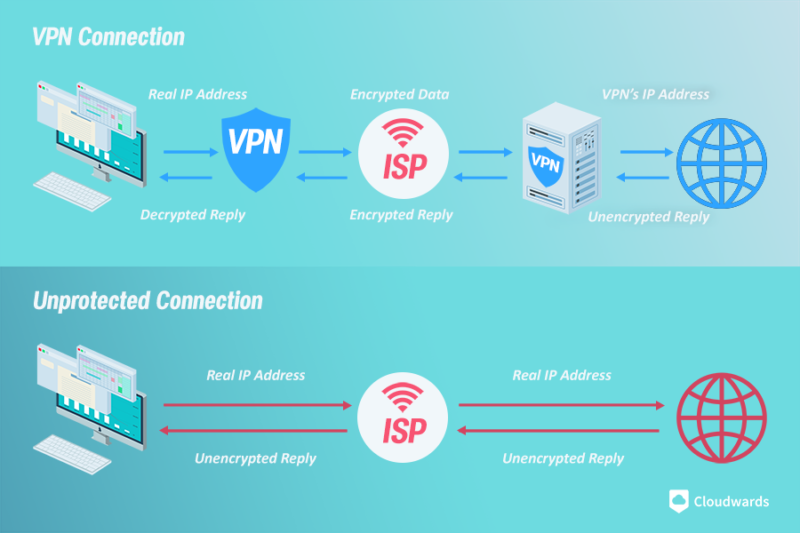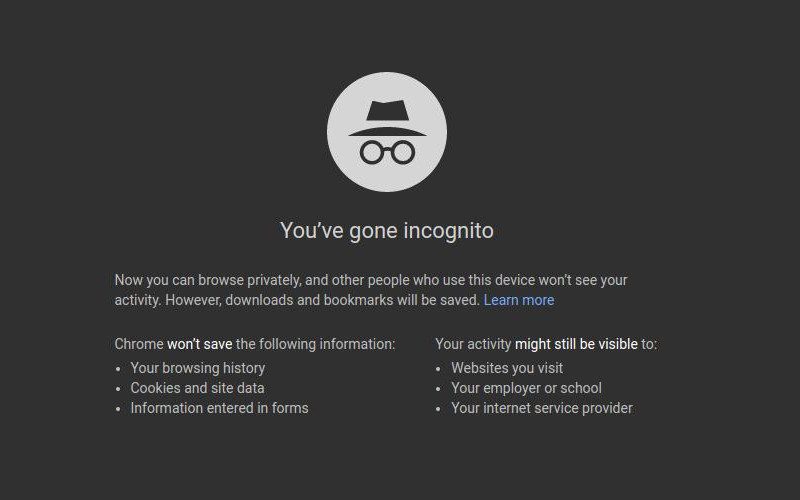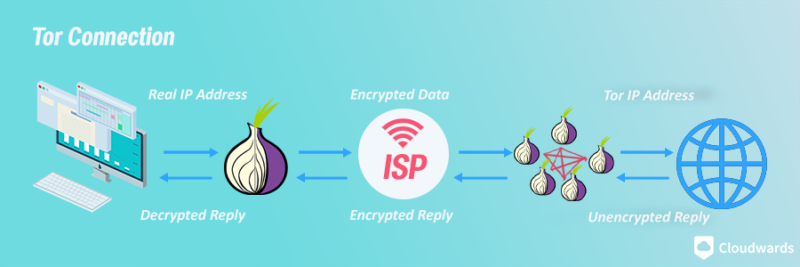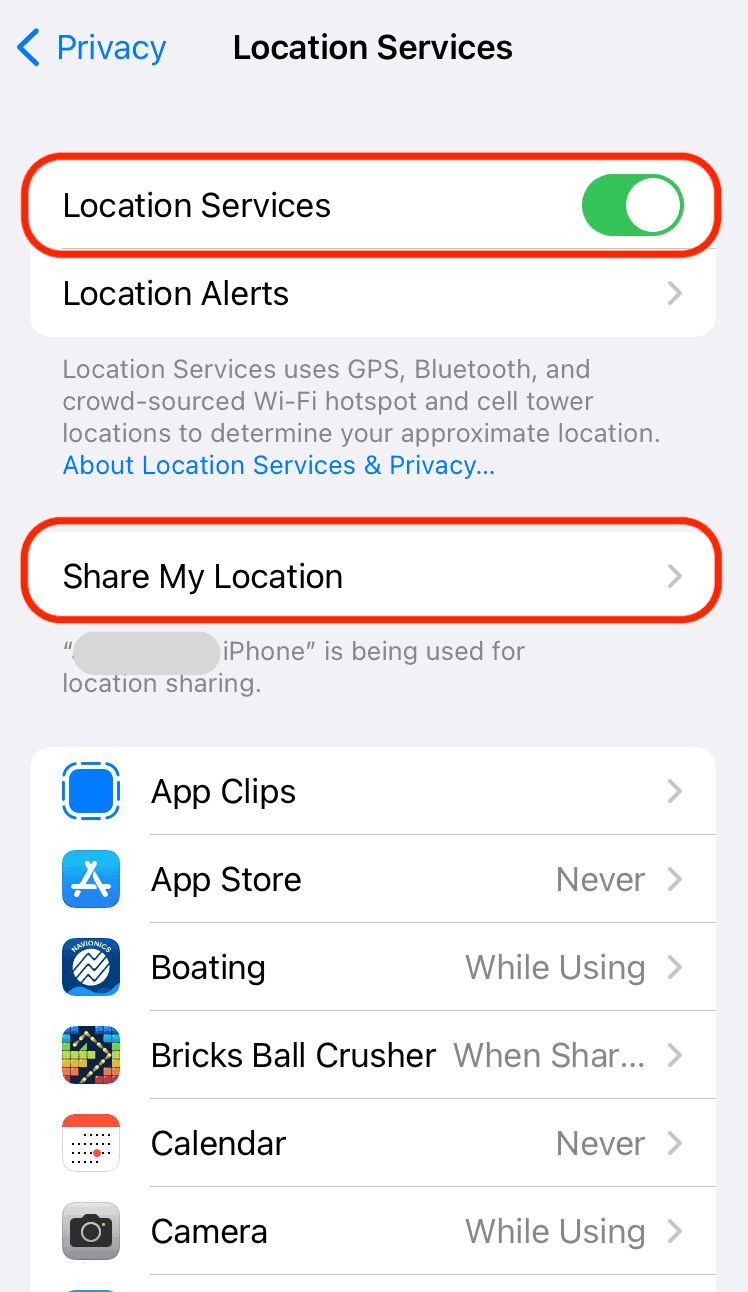10 Critical Abortion Privacy Tips: How to Protect Your Digital Data in the US in 2025
With state abortion laws in flux in the U.S. after Roe v Wade was overturned, it’s important to learn how to protect yourself online to cover your digital trail. These 10 critical abortion privacy tips help protect your right to privacy amid the abortion debate.
Abortion privacy just became much more important for Americans. On June 24, 2022, the United States Supreme Court issued its ruling in the Dobbs v Jackson case, overturning the 50-year precedent of Roe v Wade, a ruling that protected Americans’ right to have an abortion. Now each state will decide its laws concerning how abortion can be allowed or restricted.
Key Takeaways:
- The Supreme Court’s decision in Dobbs v Jackson means that each state needs to decide whether to protect abortion rights or to restrict abortions — and determine when abortion could be considered a crime.
- Your activity online leaves a digital trail, but there are steps you can take to keep your information private.
- You should download a VPN, choose privacy-focused tools, encrypt your text messages and emails, and adjust your device settings for more digital privacy.
At the time of writing, only 16 U.S. states (plus the District of Colombia) have laws that protect the right to have an abortion. With abortion access in question in 34 states, it is important for anyone in those states who might find themselves considering an abortion to ensure their digital privacy remains intact.
Remember, what you do online can leave a digital trail, and that information could be subpoenaed by law enforcement and used against you in court. This guide will provide 10 tips on how to keep your online data private and secure.
However, the first thing you should do right now is download a trustworthy VPN on all your devices. A VPN encrypts your internet connection and prevents your ISP from seeing what sites you visit. Our top VPN suggestions are NordVPN and Surfshark but if you want a secure free VPN, opt for PrivadoVPN.
What Is Abortion Privacy in a Post-Roe v Wade World?
Abortion privacy in a post-Roe v Wade world is essential for protecting yourself from prosecution — especially when so many state laws are in flux concerning abortion care.
When the Supreme Court made abortion legal in the United States in 1973 with the court case Roe v Wade, the internet didn’t even exist — it would take a full decade before the “internet” was born and another decade after that before the World Wide Web would open to the public.
It goes without saying, then, that “abortion privacy” looks quite different today than it did 50 years ago. Now it largely involves digital privacy, and ensuring privacy means understanding how companies collect and store data about you, and how that data might be used by law enforcement.
Where Is Abortion Legal in the US?
Most states where abortion is legal in the U.S. can be found on the west coast or in the north-east, although the AP has an excellent article that shows the current standings and the history of the state laws in more detail.
After the Dobbs v Jackson ruling, it’s best to assume that state laws on abortion are going to shift and change significantly over the next few months and years.
For example, there were many states with “trigger laws” that went into effect immediately once the ruling was overturned. Additionally, in 2021 and 2022, some states passed “heartbeat” bills — which restrict abortion after only six weeks of pregnancy — with the intention of challenging Roe v Wade in the Supreme Court.
However, with Roe overturned, these states could ban abortion altogether. Still, there are also a lot of gray zones that lawmakers and state legislatures are scrambling to figure out.
Some examples:
- What if someone travels to another state’s abortion clinic for access to abortion, where the procedure is still legal?
- What happens if someone orders abortion pills by mail?
- What if someone uses a menstrual extraction kit during the first trimester of pregnancy in a self-induced abortion?
- What if companies cover the travel costs for their employees’ abortion procedures?
- What happens if there is a life-threatening complication to a pregnancy during a medical procedure?
With so many questions and uncertainty with each state law, it’s best to play it safe and make sure your personal medical decisions remain secure and private, especially online.
US Federal Privacy Laws & Online Protection
Compared to 1973, we all have a much bigger online information trail about our lives, from social media posts to our search history to our device location data. This means you should really be concerned about data privacy and what companies know about you from your online life.
The United States does not have a federal privacy law that protects citizens’ online privacy, like you can see with the EU’s GDPR. Additionally, just like U.S. state abortion laws, U.S. data privacy laws vary from state to state.
Big Tech companies are largely unchecked in what data they collect — and they collect a lot. Here is an incomplete list of data some Big Tech companies — including Facebook, Google, Apple, Twitter and Microsoft — might be collecting on you:
- Name, phone number, email address
- IP address
- Location data
- Devices you use
- Emails & messages
- Purchase history
- Search history
- Videos watched
- Document, photo & video uploads
- Ads you click
- Apps you use
…and more.
However, the companies collecting data on you aren’t limited to Big Tech. Everything from your fitness app to the browser you use collects data, and even metadata can paint a pretty accurate picture of your habits or life events.
If a U.S. company has this data, then the government or law enforcement can obtain this information through subpoenas, warrants and court orders. In effect, what you do online could be used against you as evidence.
HIPAA & Abortion Privacy
Although we are focusing on digital privacy for this article, we want to touch on one of the few U.S. federal laws to protect privacy for citizens: the Health Insurance Portability and Accountability Act of 1996 (HIPAA).
HIPAA prevents patient health information from being disclosed without consent or knowledge. If you’re wondering whether HIPAA protects abortion patients from subpoenas, court orders or warrants in states where abortion is illegal — it won’t.
10 Tips to Protect Your Digital Privacy When Seeking an Abortion
By now you should know that what you do online is not private. However, there are steps you can take to ensure your privacy and security.
1. Use a Good VPN: Abortion Privacy
Using a VPN is the best first step you can take to mask what you do online. A VPN routes your internet connection through a VPN server, encrypting the connection and letting you use a different IP address via the server.
The encryption prevents your internet service provider from seeing what you’re doing online. That way, if the ISP is subpoenaed, they will have no incriminating information to hand over to law enforcement.

That said, the VPN can still see what you do online. That’s why it’s critical that you use a VPN that has a proven no-logs policy. What this means is that the VPN will not collect any information on what you do online.
Some VPNs claim to not collect logs, but in reality do. However, there are some VPNs that use RAM-based servers, which delete all data at the end of a session. These VPNs are the best for privacy because they literally have no data to turn over if questioned by law officials.
The best VPNs for privacy include NordVPN and Surfshark, both of which offer a 30-day money-back guarantee that you can use as a free trial for one month. If you want a trustworthy free VPN, you can use the free tier with PrivadoVPN. Don’t use most other free VPNs, because they might cause more harm than good.
2. Avoid Google, Search With DuckDuckGo
If you have a lot of questions concerning abortion rights, you might be tempted to start Googling. Don’t. Google collects a lot of information about you from your online searches.
That’s why you need to use a search engine that doesn’t track your data. The best option is to use DuckDuckGo, which does not track your search history or personally identifiable data.
3. Don’t Trust Incognito Mode
If you read tip number two and you think you could just use “incognito mode” to protect yourself online, you’re wrong. Incognito mode does not actually protect you. All it does is not save that online session’s browsing history, cookies and site data or form information.

Your online activity will still be visible to your ISP, the websites you visit, your employer, your school and more. That’s because incognito mode does not encrypt your connection in any way. For this type of anonymity, you need to use a VPN (see tip number one).
4. Use a Privacy-Focused Browser, Like Brave
The next thing you can do is use a browser that is privacy-oriented. (Read this article if you don’t know the difference between browsers and search engines).
A browser can collect a lot of information about you, including your hardware and software information (data used for device fingerprinting), connection data (including your IP address, which you can change by using a VPN), geolocation, browsing history, social media logins — even your mouse movement. You can use tools like Webkay to see what your browser knows about you.
Brave is the best browser for privacy (read our Brave review). It doesn’t make any money off your data, unlike many other browsers. Some of the built-in features include blockers for ads, cookies and trackers, plus fingerprint-blocking settings. Brave also offers private browsing mode (the same thing as incognito mode mentioned in tip three).
Most interestingly, Brave allows you to “browse with Tor,” which lets you use the Tor network with the browser. If you want to know more about Tor, our VPN vs Proxy vs Tor guide has more information on how it works.

5. Use Period Apps That Are Private
In a post-Roe world, many women have been concerned that law enforcement could use period-tracking app data as evidence. It’s a valid concern, as millions of people use many different period-tracking apps, all with varying levels of privacy.
Surfshark evaluated 20 period-tracking apps to see how private they are for users. The three most data-hungry apps were Eve, Glow and Ovia — all based in the U.S. and subject to subpoenas.
Make sure to read your app’s privacy policy to see exactly what data they collect and how you can erase that information — and request to remove as much data as possible.
This is important because some reproductive health apps collect a lot of sensitive data, and they might share your app information with Facebook and Google, or be subject to providing its collected information to the U.S. government through data requests.
Flo
Flo is one of the most popular period-tracking apps, with 43 million active users. It is based in the U.K., and its users are protected somewhat by GDPR. However, Flo ranks sixth out of 20 in the amount of data collected, according to Surfshark’s report.
Additionally, the Wall Street Journal found in 2019 that Flo was secretly sharing sensitive user data with Facebook; Flo settled the charges in 2021.
In Flo’s current privacy policy, though, it makes clear that you can withdraw your consent for the app to use technical device information, and you can also request to access, modify, correct, erase and update your personal data.
Consider Other Apps or Go Old School
According to Surfshark’s report, the app that collects the least amount of data that’s based outside the U.S. (and China) is the Canadian-based Fertility Friend app, which has 4.8 stars out of 6,200 reviews on the Apple store. Its privacy policy is solid, and it even has a special statement addressing U.S. users’ concerns about privacy.
Otherwise, if you want to keep things simple, opt for an analog calendar instead to track your periods.
6. Text With Encrypted Messaging Apps
Encrypting your texts ensures that messages stay private. If you’re wondering how to encrypt your messages, the easiest way is to use a separate encrypted messaging app and email service.
WhatsApp is end-to-end encrypted, but it updated its privacy policy and now shares a lot of metadata with Meta/Facebook — and again, metadata can reveal a lot about you. You’re better off looking at other messaging alternatives, like Signal, Wickr Me or Telegram.
7. Encrypt Your Emails
It is possible to send encrypted emails with Gmail, Outlook and iMail, and there are also third-party encryption apps you can use with your email, including Mailvelope, GNU Privacy Guard and GPGTools.
However, Cloudwards’ favorite encrypted email service is ProtonMail (read our ProtonMail review) — provided by the same company that creates ProtonVPN, a great free VPN choice.
8. Turn Off Location Sharing on Your Mobile Devices
Some of your apps might be tracking your location, but there are ways to turn off location sharing with your mobile device, even for a short time.
Android:
- Settings > Personal > Location Access > Turn off “access to my location”
iOS:
- Settings > Privacy > Location Services > Turn off “location sharing”

If you’re on iOS, you should also consider removing your device from Apple’s “find my phone” feature.
9. Use Privacy-Focused Mapping Tools
Google Maps, Apple Maps and Waze (also owned by Google) are the most commonly used navigation apps for driving, but they aren’t the most private.
You can turn off your location data with Google, but unless you turn off “web & app activity” in your settings, your location can still be tracked.
Even if you turn off location sharing, anytime you use Google — maps, search or any other app — it sends a timestamp to Google, which can be used to create an accurate map of your location history.
You should consider using a more privacy-focused mapping tool for directions. Some excellent Google Maps alternatives include HERE WeGo, Sygic GPS Navigation & Maps and OpenStreetMap.
10. Opt Out of Personalized or Targeted Ads & Disable Mobile Ad ID
An ad identifier is a string of numbers and letters that identifies your smart device so that companies can track your data. Every app and tracker sees this same identifier, which means that data brokers can compare notes on your data, including where you work, sleep, study, socialize, seek medical care and more.
It’s important that you learn how to adjust your settings to disable your ad ID, or opt out of personalized or targeted ads to minimize the amount of personal information available for them to sell — or to be subpoenaed. EFF has a great guide on how to adjust your settings on Android, iOS and other devices.
Final Thoughts on Digital Privacy: Abortion
It is a confusing time in the United States now that the Supreme Court ruled to overturn Roe v Wade. Abortion rights now fall to individual states, and it’s likely more states will enact full or partial abortion bans.
Reproductive health care varies from state to state, and although some states protect abortion as a fundamental right, many other states’ laws mark it as first- or second-degree murder. People seeking abortions who live in areas with abortion restrictions should be careful with their online digital trail.
Many abortion clinics and reproductive health services are closing in states where abortion medical procedures are now illegal. Abortion providers face felony charges in some states for performing these medical procedures, and it’s a big risk to perform or seek abortion care. Health care providers should also practice smart online privacy measures.
We hope the 10 tips above will help you keep your personal information safe. What tip did you find most helpful? What VPN are you using? Are you concerned about digital surveillance? Are there any other tips you’d recommend for online safety? Let us know in the comments, and thank you for reading.
FAQ
Abortion is legal to varying degrees in some U.S. states, but more states are restricting reproductive health care for people seeking abortions and for clinics providing abortions.
Roe v Wade created federal protection for abortion, but it was overturned in June 2022 in the Dobbs v Jackson case. Having the ruling overturned means that the legality of seeking an abortion or providing one as a reproductive health care provider will be decided by various state laws.


